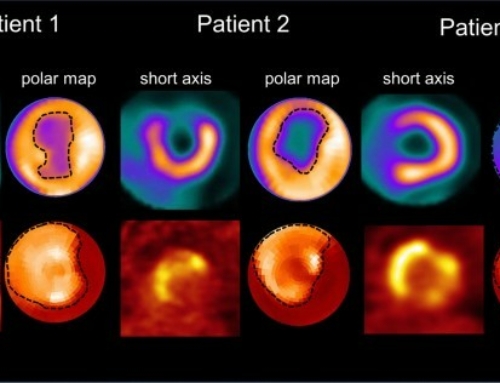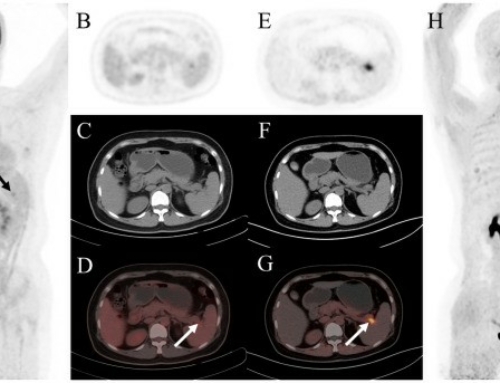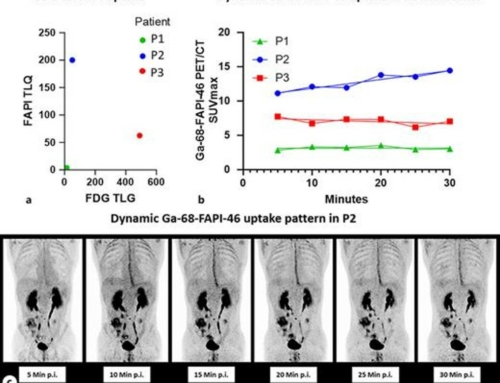Lennert Eismann, Stephan T Ledderose, Benazir Enzinger, Elena Berg, Thilo Westhofen, Severin Rodler, Gerald B Schulz, Johannes Toms, Adrien Holzgreve, Franz J Gildehaus, Matthias Brendel, Clemens C Cyran, Marcus Unterrainer, Christian G Stief, Peter Bartenstein, Boris Schlenker, Lena M Unterrainer
Purpose: Penile cancer is a rare entity and has a good prognosis in localized stage. Delayed surgical treatment of lymphatic disease is associated with poor overall survival but conventional imaging cannot detect occult lymph node metastasis sufficiently. Imaging cancer related fibroblasts has shown promising results as non-invasive staging tool in various tumor entities but has not yet been evaluated in penile cancer.
Methods: In this single-center pilot study, patients planned for surgical treatment for penile cancer underwent preoperatively [68Ga]Ga-FAPI-46 PET/CT. Post-operative histopathology was compared to [68Ga]Ga-FAPI-46 PET/CT results.
Results: From January 2022 to June 2022, a total number 11 patients with histopathologically proven penile cancer underwent surgery and received [68Ga]Ga-FAPI-46 PET/CT prior therapy. 8 primary tumor sites and 4 lymph node regions were analyzed. FAPI uptake was increased on primary tumor site (SUVmax 16.2 (9.1 – 25.8)). Histopathological proven lymph node regions showed highly increased FAPI uptakes (SUVmax 17.9 (16.4 – 23.5) on [68Ga]Ga-FAPI-46 PET/CT.
Conclusion: In this first pilot cohort, there were no false-positive FAPI uptake which might allow the detection of occult lymph node metastasis by [68Ga]Ga-FAPI-46 PET/CT and might consequently lead to omitting lymph node regions during surgery that had no increased FAPI uptake pre-operatively.

![[68Ga]Ga-FAPI-46 PET/CT for penile cancer - a feasibility study](https://sofie.com/wp-content/uploads/2024/06/info.ibamolecular.png)
![Efficacy of [68Ga]Ga-FAPI-PET as a non-invasive evaluation method of liver fibrosis](https://sofie.com/wp-content/uploads/2025/06/info.ibamolecular-500x383.png)
![Comparison of [99mTc]Tc-FAPI SPECT/CT and [18F]FDG PET/CT as predictive biomarkers for immunotherapy response in gastrointestinal cancer](https://sofie.com/wp-content/uploads/2025/06/info.ibamolecular-500x383.jpg)


